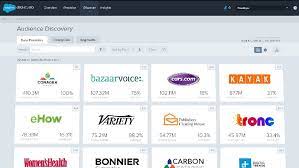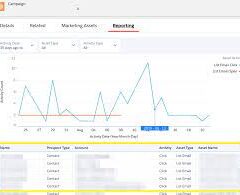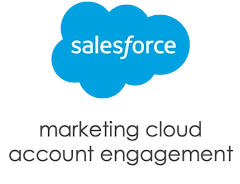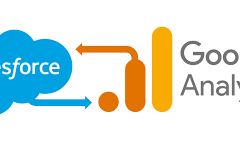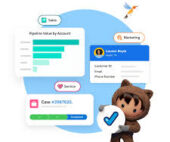Why integrate Salesforce with Google Analytics? Google 360 Analytics Dashboard in Marketing Cloud
Salesforce Marketing Cloud users can gather and understand large amounts of data thanks to integration with the Google platform. Using digital analytics, businesses can gain insight into the entire conversion funnel by combining offline sales data with digital analytics data.
Google 360 Analytics Dashboard in Marketing Cloud
Google Analytics dashboards use graphs, charts, and other forms of data visualization to tell you how a website is performing with users. It’s a customizable digital interface that allows you to choose from up to 12 widgets (per dashboard) to track an array of metrics.
Tailor Your Dashboard
Now that you are familiar with accessing consolidated reports and views, it’s opportune to tailor the Journey Analytics dashboard to align with your team’s requirements.
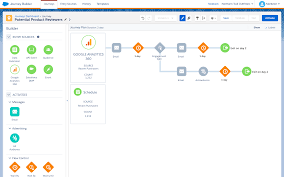
Consider the following customization options:
- Opt for your preferred date range view: Whether selecting from preset date ranges or defining a custom date range, choose what suits your team’s analytical needs.
- Conduct a time-based analysis: Compare marketing performance over distinct periods by selecting between two date ranges.
- Streamline the dashboard: Collapse tiles that are unnecessary for your team to declutter the interface.
- Prioritize essential reports: Reorder tiles to ensure that the most crucial reports take precedence and appear prominently on the dashboard.
Integrate Google Analytics with Marketing Cloud Engagement to leverage Google Analytics capabilities for tracking and analyzing journey activity. View resulting metrics directly within Marketing Cloud Engagement through a secure link established by Google’s native authentication, connecting your Marketing Cloud Engagement instance and Google Analytics account.
Enterprise 2.0
For this integration, ensure your Marketing Cloud Engagement account includes the Google Analytics Audiences SKU and is at least a Marketing Cloud Engagement Enterprise 2.0 account. Contact your Salesforce account representative for more information on these requirements.
The integration supports Google Analytics properties created with the latest platform version, Google Analytics 4 (GA4), including both the free version and the paid Google Analytics 360 enterprise version.
If needed, the integration can be revoked from a Google Analytics account. Google recommends designating a primary company account to track all properties and views. You should be following the Google Hierarchy of organizations, accounts, users, properties, and views.
Before configuring the Google Analytics Integration for Marketing Cloud Engagement:
- Confirm admin permissions for Marketing Cloud Engagement and the Google Analytics account and property.
- Create a Google Analytics tracking code and add it to your website pages.
- If conversion data is desired, enable ecommerce in your Google Analytics account (available only in the paid Google Analytics 360 account).
Google Analytics Integration for Salesforce Marketing Cloud Engagement uses GA4, offering both free and paid versions. If using the older Universal Analytics (UA), migrate your UA data to GA4 before July 2024.
To configure the integration, any user with admin rights can set it up between Marketing Cloud Engagement and the Google Analytics account.
Recognizable User Id
Google Analytics Audiences in Marketing Cloud Engagement generate a persistent user ID in both systems. This user ID allows data collection on customer behaviors. This aids in facilitating the creation of Google Analytics audiences for use in Journey Builder.
Explore Journey Analytics Metrics with the Google Analytics 4 integration, reviewing metrics and dashboard tiles on the Journey Analytics dashboard. Evaluate journey performance against set goals. By combining email and site metrics in one place. Customize your dashboard’s appearance to display the most relevant metrics.
For web and mobile app metrics in the Journey Analytics dashboard, set up Google Analytics tracking for app and web. Analyze how mobile app conversions impact web behavior to gain comprehensive insights.



